-
 bitcoin
bitcoin $87959.907984 USD
1.34% -
 ethereum
ethereum $2920.497338 USD
3.04% -
 tether
tether $0.999775 USD
0.00% -
 xrp
xrp $2.237324 USD
8.12% -
 bnb
bnb $860.243768 USD
0.90% -
 solana
solana $138.089498 USD
5.43% -
 usd-coin
usd-coin $0.999807 USD
0.01% -
 tron
tron $0.272801 USD
-1.53% -
 dogecoin
dogecoin $0.150904 USD
2.96% -
 cardano
cardano $0.421635 USD
1.97% -
 hyperliquid
hyperliquid $32.152445 USD
2.23% -
 bitcoin-cash
bitcoin-cash $533.301069 USD
-1.94% -
 chainlink
chainlink $12.953417 USD
2.68% -
 unus-sed-leo
unus-sed-leo $9.535951 USD
0.73% -
 zcash
zcash $521.483386 USD
-2.87%
How to start mining Bitcoin
Bitcoin mining involves utilizing specialized computers to validate transactions and generate new bitcoins, with miners receiving block rewards for their contributions in securing the network.
Jan 10, 2025 at 01:54 am
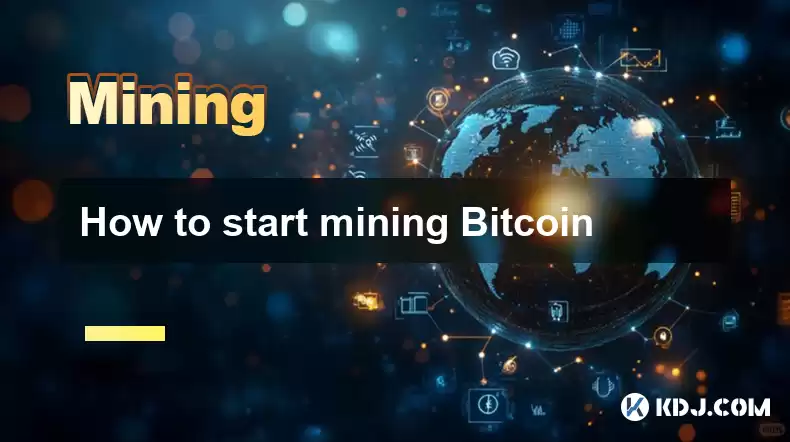
How to Start Mining Bitcoin: A Comprehensive Guide
Key Points
- Understanding Bitcoin Mining
- Essential Equipment for Mining
- Choosing a Mining Pool
- Setting Up Your Mining Rig
- Managing Mining Software
- Monitoring and Troubleshooting
Understanding Bitcoin Mining
Bitcoin mining is the process of verifying and adding bitcoin transactions to the blockchain, the public ledger that records all bitcoin transactions. Miners use specialized computers to solve complex mathematical problems, which release new bitcoins as a reward.
- Role of Miners: Miners are responsible for securing the bitcoin network by validating transactions and preventing fraud.
- Proof-of-Work Concept: Bitcoin mining employs a Proof-of-Work (PoW) consensus mechanism, which requires miners to prove their work by solving cryptographic puzzles.
- Block Rewards: Miners receive a block reward for successfully solving a block, which consists of newly created bitcoins and transaction fees.
Essential Equipment for Mining
To start bitcoin mining, you will need the following essential equipment:
- Mining Rig: A mining rig is a high-powered computer designed specifically for mining cryptocurrencies.
- ASIC Miner: An ASIC (Application-Specific Integrated Circuit) miner is a specialized hardware designed for efficient bitcoin mining.
- Power Supply: A reliable power supply is crucial to ensure a stable mining operation.
- Cooling System: Mining rigs generate significant heat, so an efficient cooling system is essential for preventing overheating and prolonging component life.
Choosing a Mining Pool
Joining a mining pool is recommended for individual miners with limited computing power. A mining pool combines the resources of multiple miners to increase the chances of finding a block and sharing the rewards.
- Consider Pool Size: Larger pools offer higher chances of finding blocks but have more competition, while smaller pools have less competition but may take longer to find blocks.
- Pool Fees: Pools may charge fees for their services, which should be factored into your profitability calculations.
- Reputation and Stability: Choose a reputable and stable pool with a good track record and reliable servers.
Setting Up Your Mining Rig
Once your equipment is ready, you can set up your mining rig:
- Assemble and Connect: Assemble the mining rig with the appropriate components, including the motherboard, GPUs, PSU, and cooling system.
- Install Mining Software: Download and install a suitable mining software, such as CGMiner or EasyMiner.
- Configure Mining Software: Configure the mining software by specifying the mining pool information, wallet address, and other necessary settings.
Managing Mining Software
Managing your mining software is crucial for maintaining optimal performance:
- Monitor Mining Progress: Use the software's monitoring tools to track the mining process, including hashrate, temperature, and power consumption.
- Adjust Settings: Regularly adjust the mining software settings, such as overclocking and fan speed, to improve efficiency and longevity.
- Update Software: Keep the mining software updated with the latest versions to ensure stability and bug fixes.
Monitoring and Troubleshooting
Regular monitoring and troubleshooting are essential for ensuring the smooth operation of your mining rig:
- Monitor Rig Performance: Regularly monitor the rig's hashrate, temperature, power consumption, and fan speed.
- Check Power and Connections: Ensure that the power supply is stable and all connections are secure.
- Clean and Maintain Equipment: Regularly clean the mining rig to prevent dust accumulation and ensure proper airflow.
- Troubleshooting Errors: Refer to the mining software's documentation or online forums for guidance if you encounter any errors or malfunctions.
FAQs
Q: Is bitcoin mining still profitable in 2023?- Mining profitability fluctuates with the price of bitcoin and the cost of electricity. Given the current market conditions, solo mining (without joining a pool) may not be profitable for individual miners.
- A good hashrate for bitcoin mining depends on the mining difficulty. As the difficulty increases, a higher hashrate is required for profitability.
- Reputable and stable bitcoin mining pools include Slush Pool, F2Pool, and AntPool. The choice depends on factors such as pool size, fees, and reputation.
- The time taken to mine 1 bitcoin varies depending on the hashrate and the mining difficulty. In current conditions, it can take several months or more to mine 1 bitcoin through solo mining.
Disclaimer:info@kdj.com
The information provided is not trading advice. kdj.com does not assume any responsibility for any investments made based on the information provided in this article. Cryptocurrencies are highly volatile and it is highly recommended that you invest with caution after thorough research!
If you believe that the content used on this website infringes your copyright, please contact us immediately (info@kdj.com) and we will delete it promptly.
- White House Brokers Peace: Crypto, Banks, and the Future of Finance
- 2026-01-31 18:50:01
- Rare Royal Mint Coin Discovery Sparks Value Frenzy: What's Your Change Worth?
- 2026-01-31 18:55:01
- Pi Network's Mainnet Migration Accelerates, Unlocking Millions and Bolstering Pi Coin's Foundation
- 2026-01-31 18:55:01
- Lido's stVaults Revolutionize Ethereum Staking for Institutions
- 2026-01-31 19:25:01
- MegaETH's Bold Bet: No Listing Fees, No Exchange Airdrops, Just Pure Grit
- 2026-01-31 19:20:02
- BlockDAG Presale Delays Raise Questions on Listing Date Amidst Market Scrutiny
- 2026-01-31 19:15:01
Related knowledge
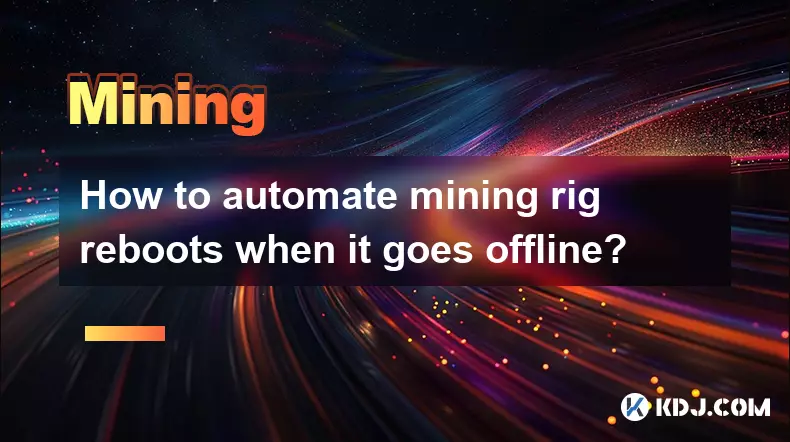
How to automate mining rig reboots when it goes offline?
Jan 23,2026 at 11:00pm
Monitoring System Integration1. Deploy a lightweight agent on the mining rig’s host OS that continuously reports hash rate, GPU temperature, and pool ...
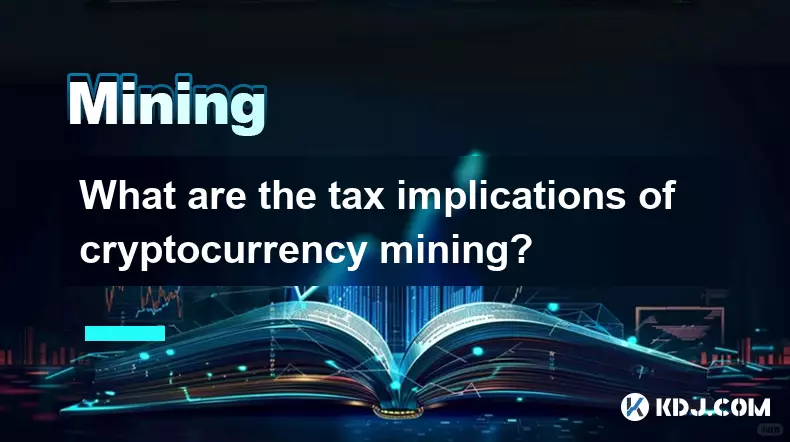
What are the tax implications of cryptocurrency mining?
Jan 23,2026 at 02:40am
Tax Treatment of Mining Rewards1. Cryptocurrency received as a reward for mining is treated as ordinary income by the IRS at the fair market value on ...
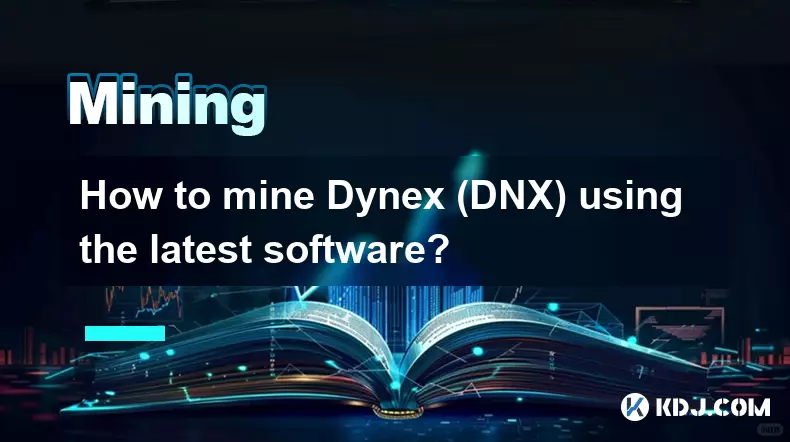
How to mine Dynex (DNX) using the latest software?
Jan 22,2026 at 10:00am
Understanding Dynex Mining Fundamentals1. Dynex (DNX) operates on a proof-of-work consensus mechanism optimized for neuromorphic computing workloads, ...
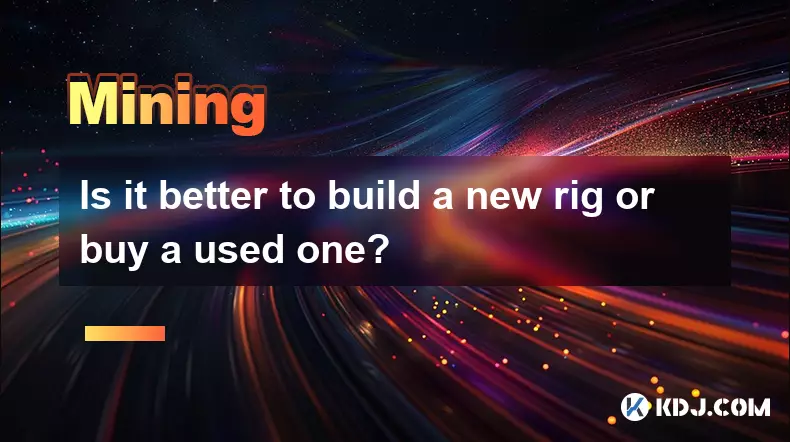
Is it better to build a new rig or buy a used one?
Jan 24,2026 at 10:20pm
Cost Efficiency Analysis1. New mining rigs come with manufacturer warranties, typically covering components for one to three years. This assurance red...
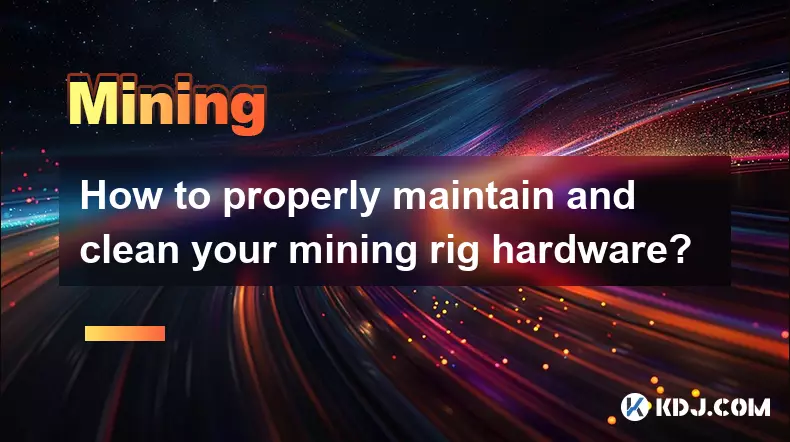
How to properly maintain and clean your mining rig hardware?
Jan 19,2026 at 11:00am
Cooling System Inspection and Optimization1. Dust accumulation inside fans and heatsinks directly reduces thermal dissipation efficiency, leading to h...
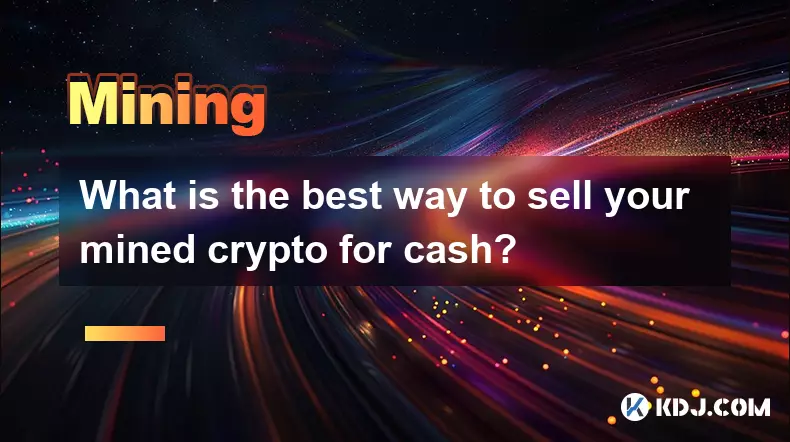
What is the best way to sell your mined crypto for cash?
Jan 20,2026 at 02:59am
Choosing the Right Exchange Platform1. Select an exchange with strong regulatory compliance and a proven track record of secure withdrawals. Platforms...

How to automate mining rig reboots when it goes offline?
Jan 23,2026 at 11:00pm
Monitoring System Integration1. Deploy a lightweight agent on the mining rig’s host OS that continuously reports hash rate, GPU temperature, and pool ...

What are the tax implications of cryptocurrency mining?
Jan 23,2026 at 02:40am
Tax Treatment of Mining Rewards1. Cryptocurrency received as a reward for mining is treated as ordinary income by the IRS at the fair market value on ...

How to mine Dynex (DNX) using the latest software?
Jan 22,2026 at 10:00am
Understanding Dynex Mining Fundamentals1. Dynex (DNX) operates on a proof-of-work consensus mechanism optimized for neuromorphic computing workloads, ...

Is it better to build a new rig or buy a used one?
Jan 24,2026 at 10:20pm
Cost Efficiency Analysis1. New mining rigs come with manufacturer warranties, typically covering components for one to three years. This assurance red...

How to properly maintain and clean your mining rig hardware?
Jan 19,2026 at 11:00am
Cooling System Inspection and Optimization1. Dust accumulation inside fans and heatsinks directly reduces thermal dissipation efficiency, leading to h...

What is the best way to sell your mined crypto for cash?
Jan 20,2026 at 02:59am
Choosing the Right Exchange Platform1. Select an exchange with strong regulatory compliance and a proven track record of secure withdrawals. Platforms...
See all articles





















![Ultra Paracosm by IlIRuLaSIlI [3 coin] | Easy demon | Geometry dash Ultra Paracosm by IlIRuLaSIlI [3 coin] | Easy demon | Geometry dash](/uploads/2026/01/31/cryptocurrencies-news/videos/origin_697d592372464_image_500_375.webp)




















































